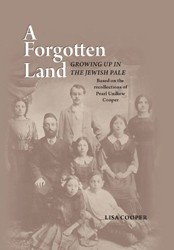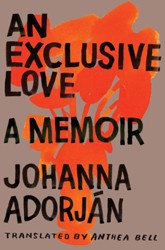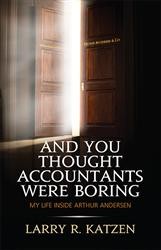By
– March 21, 2013
These two recent publications are part of the New York Review of Books Classics Series. The hundreds of volumes in this notable literary venture include neglected works and authors ranging from Sir Thomas Browne to Simone Weil. All available in paperback, NYRB Classics already includes three titles by Vasily Grossman and four by Stefan Zweig.
The Austrian-Jewish writer Stefan Zweig (1881−1942), and the Russian-Jewish author Vasily Grossman (1905−1964), both engage the reader with a stylistic and spiritual intensity. Best known for his biographies and diverse fictional narratives, Stefan Zweig once remarked that his affluent parents “were Jewish only through accident of birth.” Yet, at times, Zweig did write at times on Jewish issues, and he had a personal and professional association with Theodor Herzl in early twentieth century Vienna. Zweig, however, rejected any form of nationalism in favor of a universal social perspective. Ironically, Zweig was compelled to enact this cosmopolitan vision when he was forced into exile in 1934; his eventual stops included England, the United States, and Brazil. The fragile sensitivity that would ultimately lead to his suicide is reflected in the subjective fervor of his narratives. Published at the height of Zweig’s popularity in 1926, the novella Confusion explores the struggle between passion and rational self-control. At a point close to the writing of Confusion, Zweig had been struck by one of his periodic depressions. In fact, he referred in a letter to “a crisis growing out of advancing years,” and feeling “as if the screws are coming loose in the machine.” The emotional turbulence of the novella does indeed reflect such a psychological and spiritual crisis.
Zweig’s first person narrator, Roland, has enjoyed a solid career as a literature professor. He begins his story with mention of the laudatory volume (Festschrift) composed to honor his sixtieth birthday and “thirty years of academic teaching.” But the troubled Roland needs to confess and uncover “the most secret factor in my mental development.” This then is an intimate journey into an interior world, the narrator’s soul. In the present, Roland often feels deeply shaken when “in the middle of a lecture” he senses that “it is not I myself speaking, but someone else, as it were, out of my mouth.” Who is this “someone else?” What actually is the “secret” which burdens this honored professor?” Zweig skillfully penetrates the mystery as Roland looks back more than forty years to his formative moments as an excited but vulnerable literary scholar. At that crucial time, Roland experienced “the intoxication and enchantment of the intellect as nowhere else…”
The powerfully learned and venerated figure who captivates and overwhelms the youthful Roland is named only Professor. This formidable mentor personally guides his devout student into “the trackless expanses of the world of the mind.” Recollecting his youthful passion, Roland reveals how an aspiring soul can be controlled by a charismatic authority.
Close attention to a person’s profound inner world also animates Vasily Grossman’s writing in An Armenian Sketchbook. Completed in 1962, two years before his death, Grossman’s memoir encountered strict Soviet censorship, and its complete text was not published until 1988. Detailed passages describing both Armenian suffering and pernicious anti-Semitism roiled the censors, but Grossman refused to cut his manuscript. During his two month visit, Grossman discerns the virtues of Armenian tolerance. He makes special mention of one occasion when old and young Armenians speak fervently “about the Jews and the Armenians, about how blood and suffering had brought them together.” In contrast to such empathy, Grossman states “that it has always pained me that our lecturers, propagandists, and ideological workers do not, in their talks and writings, speak out against anti- Semitism…”
Grossman journeyed to Armenia to prepare a literary translation of an “epic novel by a prominent Armenian writer about the construction of a copper-smelting plant.” He avoids the usual travelogue conventions in his memoir. Instead, his higher aim is to describe his own shifting feelings and perceptions relating to the profound “soul” of the Armenian landscape and society. On its forbidding surface, Armenia is a land of “silent, implacable stone,” but “titanic labor” has shaped and humanized this once “invincible” stone. Such enduring effort defines the “spiritual value” which Grossman celebrates in Armenia.
Such attention to what is deeply felt and alive join Grossman’s memoir to the passion portrayed in Stefan Zweig’s novella. As Grossman remarks, there can be a moment when a “secret becomes manifest,” when “masks fall from faces” and “every human word is filled with meaning and interest.” It is that soulful secret which both of these fine writers seek to uncover. An Armenian Sketchbook includes extensive notes.
Zweig’s first person narrator, Roland, has enjoyed a solid career as a literature professor. He begins his story with mention of the laudatory volume (Festschrift) composed to honor his sixtieth birthday and “thirty years of academic teaching.” But the troubled Roland needs to confess and uncover “the most secret factor in my mental development.” This then is an intimate journey into an interior world, the narrator’s soul. In the present, Roland often feels deeply shaken when “in the middle of a lecture” he senses that “it is not I myself speaking, but someone else, as it were, out of my mouth.” Who is this “someone else?” What actually is the “secret” which burdens this honored professor?” Zweig skillfully penetrates the mystery as Roland looks back more than forty years to his formative moments as an excited but vulnerable literary scholar. At that crucial time, Roland experienced “the intoxication and enchantment of the intellect as nowhere else…”
The powerfully learned and venerated figure who captivates and overwhelms the youthful Roland is named only Professor. This formidable mentor personally guides his devout student into “the trackless expanses of the world of the mind.” Recollecting his youthful passion, Roland reveals how an aspiring soul can be controlled by a charismatic authority.
Close attention to a person’s profound inner world also animates Vasily Grossman’s writing in An Armenian Sketchbook. Completed in 1962, two years before his death, Grossman’s memoir encountered strict Soviet censorship, and its complete text was not published until 1988. Detailed passages describing both Armenian suffering and pernicious anti-Semitism roiled the censors, but Grossman refused to cut his manuscript. During his two month visit, Grossman discerns the virtues of Armenian tolerance. He makes special mention of one occasion when old and young Armenians speak fervently “about the Jews and the Armenians, about how blood and suffering had brought them together.” In contrast to such empathy, Grossman states “that it has always pained me that our lecturers, propagandists, and ideological workers do not, in their talks and writings, speak out against anti- Semitism…”
Grossman journeyed to Armenia to prepare a literary translation of an “epic novel by a prominent Armenian writer about the construction of a copper-smelting plant.” He avoids the usual travelogue conventions in his memoir. Instead, his higher aim is to describe his own shifting feelings and perceptions relating to the profound “soul” of the Armenian landscape and society. On its forbidding surface, Armenia is a land of “silent, implacable stone,” but “titanic labor” has shaped and humanized this once “invincible” stone. Such enduring effort defines the “spiritual value” which Grossman celebrates in Armenia.
He perceives the warmth of the human soul amidst the country’s rocky plains and mountains; so too, a particular scene or human encounter during his travels often becomes a part of his soul. Such transformation of one’s whole internal world removes Grossman from repressive external controls, the dictates of bureaucrats. After all, he comments, “there is no soul in a government office. A government office is not alive.”
Such attention to what is deeply felt and alive join Grossman’s memoir to the passion portrayed in Stefan Zweig’s novella. As Grossman remarks, there can be a moment when a “secret becomes manifest,” when “masks fall from faces” and “every human word is filled with meaning and interest.” It is that soulful secret which both of these fine writers seek to uncover. An Armenian Sketchbook includes extensive notes.
Additional Titles Featured in Review
Peter E. Kornblum holds a Ph.D. in English from the University of California at Berkeley.He taught English in the High School Division of the New York City Department ofEducation from 1981 through 2007.





